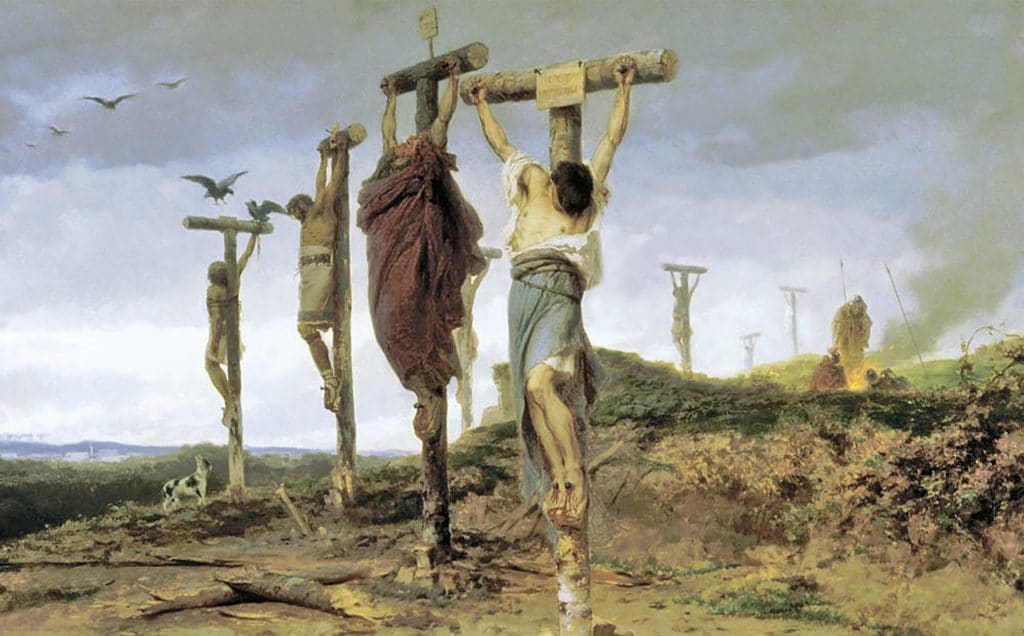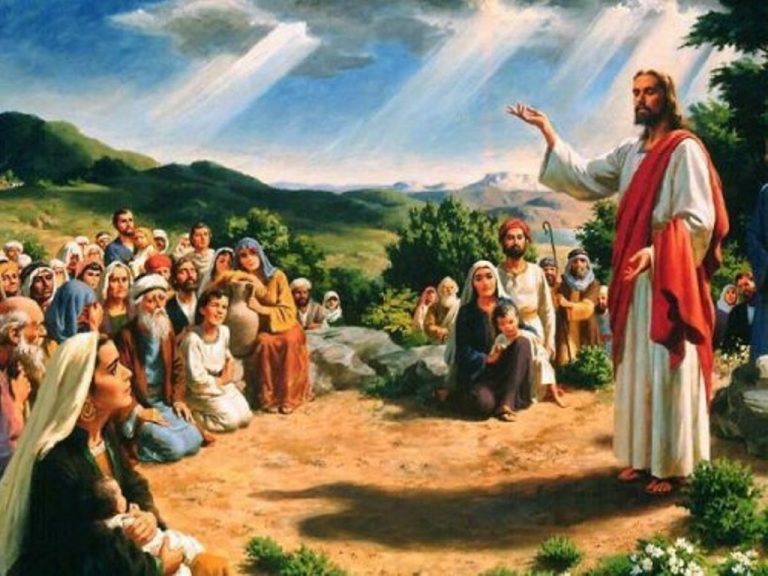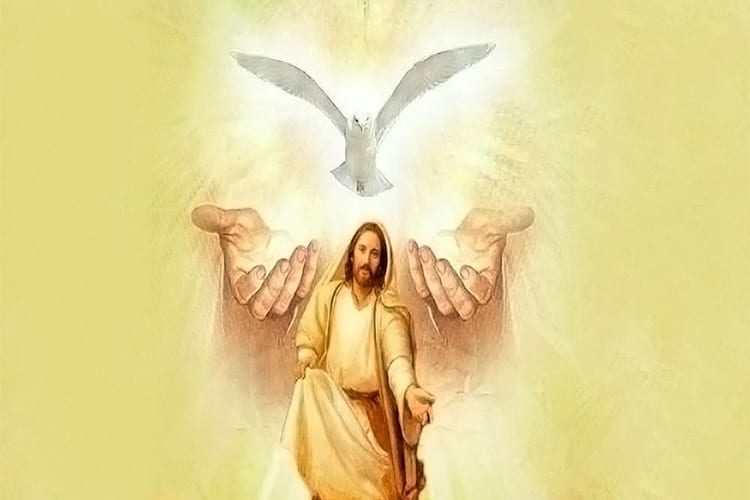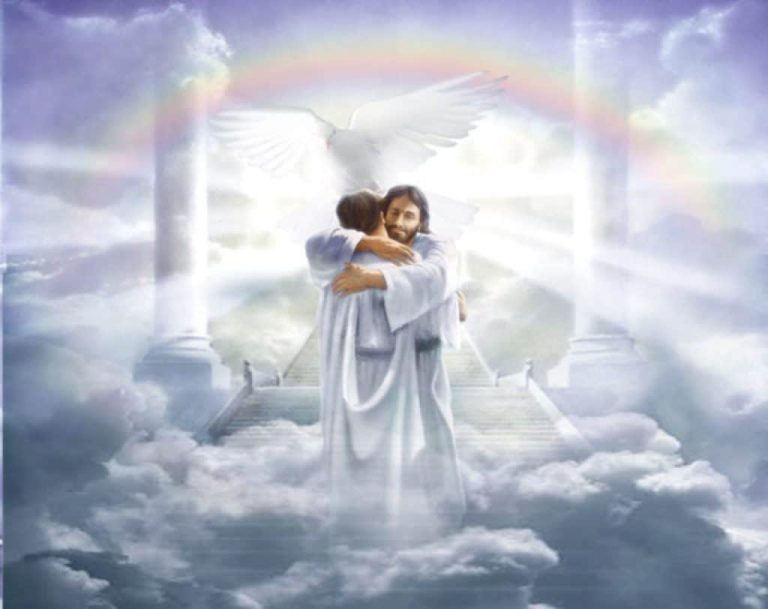Early Christian communities or early Christianity
The first Christian communities were marked by a number of events that served to give relevant shape to today’s Christianity, learn everything about this movement by reading this interesting article.
First Christian communities
The so-called primitive Christianity has its beginnings after the death of Jesus, when the apostles, by order of the Messiah himself, had the task of proclaiming the Gospel to all nations and obtaining the largest number of disciples and followers.
The main task of the students of Jesus was based on spreading the word of their own leader throughout the world; the apostles began to visit the Jewish communities that were in Jerusalem, there it can be said that the first Christian communities were born, however a period of persecution and murder began where many had to flee from Jerusalem, but that is a topic that we will see more ahead.
In Jerusalem, the first foundations of what would be true Christianity were established in later years, with the conversion of many non-believers such as Saul, an ancient Roman soldier who was later named an apostle, as well as Barnabas, who went on to bear the name of Paul.
In this region the first Apostle Assembly was formed, where criteria and positions began to be defined regarding the attitude and position of the gentiles (Group of non-Jewish, non-Christian pagan people), as well as the real meaning of the Law of Moses and his relation to the gospel.
The first Christians carried the apostolate through the entire Jewish community, among them were Peter and James, while Barnabas and Paul went to the Mediterranean area looking for the incorporation of these inhabitants who were mostly pagans and annex them to the apostolate left by Christ.
The rest of the Disciples took the gospel to more distant regions such as Asia and Africa where small communities were formed, which later grew over time.
The interior of the first Christian communities
At the beginning it was not easy at all, getting together with all the disciples and establishing strategies for preaching was quite an arduous task, it was already stated that Jesus had left the order to evangelize throughout the world, the first communities established the concept of communion which served to be able to stay together.
Based on this principle, the first Christian communities lived together as brothers, shared goods with those who needed it most, the apostles were the guide of these communities, who received information and teaching from them as part of the main mission.
These actions allow that week after week more followers are added to the apostolate, the preaching also helped to encourage the arrival of more Gentiles and Jews, this relationship of union was very well seen by other communities who said: “Look how they love each other”.
ceremonies and rites
Among the teachings in the first Christian communities, the learning of prayer is established as a tool to obtain the will of God and make faith help the spirit, it was carried out constantly, daily where each member had the duty to communicate with God. .
Most attended the temple in order to perform ceremonies, where they prayed for several hours, likewise some who could not attend performed them at home, Jerusalem as we all know was made up of a number of diverse communities.
The disciples also establish the performance of rites and prayers at special times and celebrations, the so-called “Fraction of the bread” was an activity that the apostles carried out in order to feed everyone who needed it, today it is a mandatory action in the Eucharist.
The help among all the members of the first Christian communities was admirable, they helped each other, especially when they observed that a miner was in danger for some reason, among the majority they provided the greatest collaboration in various aspects.
Another of the rites that began to be carried out consists of the baptism ceremony, which was a process of entering the community, which together with the laying on of hands allowed each member to connect directly with the Holy Spirit or serve as a spiritual guide within the community. of the community, which allowed establishing how the first Christian communities lived
first missions
For the believers and followers of Jesus, the gospel represented good news, therefore they had to take it to all regions, so that preaching was the most important activity during those first years, the main objective was to be able to take the word to everyone. the corners.
The apostles, along with the rest of the volunteers who were willing in the communities, dedicated themselves to carrying the word through different regions, at first they reached those who truly believed in Jesus, later they took their message to the Jews and continued with the rest. of non-believers.
These activities were very dynamic, and even got resistance from some Jews who did not believe in the word of the apostles, much less from other believers. The spread of preaching took place to various nearby regions, marking the beginning of the Christian movement.
The organization as a necessity
At the beginning the organization was made up of the apostles and disciples who took the reins in the preaching activities, and the so-called works of mercy, however there was no strong and stable structure that could directly designate the leadership and responsibilities in the first Christian communities.
Most of these responsibilities fell on the apostles, where the Christian communities were growing and a type of organization had to be determined where the guidelines could be established so that the idea and the ideological movement of Christ would not be dispersed. This created a situation where the Apostles could not have control of all the communities.
They then decide to name the so-called “Chargers” of the communities who were followers and disciples who lived in the community itself, having some time of activities within it to assign them to those positions, the process was carried out through the imposition of hands , where the person was responsible for carrying out the “ministry” of Jesus and leading the administration of a specific community.
ministry of the word
It was one of the first activities established by the disciples to the “Chargers”, where the main action of preaching, promoting and attracting believers, as well as ensuring that the word of Jesus remained intact and was not deviated from its principles.
Each manager had the power and repair to carry out these tasks. The disciples specially selected each person who was going to fulfill the functions of the ministry of the word,
community ministry
The same person had the responsibility of carrying out the administration and directing the Christian community through actions such as the distribution of goods, teachings, information and acts of kindness towards the rest of the non-Christian communities.
These two ministries were led by the Apostles who established the guide and regulations so that the rest of those “in charge” could meet the objectives, however the responsibility for preaching falls directly on the apostles, who had the knowledge and the way to do it.
As time passed, other ministries were created, which were created with the purpose of expanding the range and responsibilities within the communities, these extra ministries would later be in charge of collecting the resources for their maintenance, serving as special envoys, prophets among others.
conflicts
The growth was representing greater responsibilities for the apostles and it was important to establish an order that could determine a line of action, so that the real function of preaching would not be dispersed, however in the first Christian communities there were various ministries that were loading depending on the need of each one.
These numerous ministries were totally different from one community to another, by the end of the first century, a way was sought to establish only three main ministries, which were, the formation of the figure of the Bishop, the priests and the deacons, which allow establishing ranks and responsibilities within communities.
The actions taken by the ministries were sometimes not very well seen by groups of Jews who practiced the ideas alongside the Apostles, sometimes they do not follow the lines and practice their ceremonies and forms of Jewish rituals, leaving the practices implemented by the early christians.
Circumcision and prayers in the temple were natural spiritual activities of the Jews, the first Christians did not profess with this type of action. So that the differences in criteria began, the practitioners of Judaism were looking for a way to combine both ceremonies in order to stand firm with their ideas.
On the other hand, the recruitment of pagans was complicated since they considered that they could not practice these rites since they went against their principles, Santiago had tried to convince the pagans to perform these ceremonies. However, Paul and Barnabas, who had preached for many years in pagan lands, were not in favor of these actions.
They defended the idea of pure and original Christianity, this conflict led to the conclusion that the decision should be made by the Apostles. It is then decided to go to them and Pedro as the main post takes the floor and establishes the following:
“What saves is faith in Jesus, not compliance with any law, but the pagans have also received the Holy Spirit”
The resolution is established and Santiago supports this proposal, they send a letter to the region of Antioquia where the community in conflict was located and manage to establish a single criterion that allows them to start with the first foundations of the born Church.
- An Assembly is then held in Jerusalem where the following conclusion is reached:
- Christians do not belong to Judaism, and much less have any relationship with Jewish ideas.
- The most important thing is not to comply with rules and laws, but to keep faith in Jesus, who is the only one who saves.
- Salvation is for the whole world, it must include all the peoples of the earth.
In this way, the first ideological conflict that arose in the first Christian communities, which grew each year and their organization was beginning to become problems for other societies and even for other spiritual currents, was dispersed.
Beginning of the persecutions
The first Christian communities were growing throughout the region, control and supervision were remaining in the hands of the ministries that previously received precise instructions regarding the preaching, this made the movement an important group that was creating concern for the Jews.
Since the time of Jesus, his disciples were persecuted along with their teacher, after the death of Jesus they were also persecuted and even some followers killed, with the growth of the first Christian communities the differences with the high Jewish authorities intensified.
The High Priest did not allow his teachings to be discussed and questioned, however in Jerusalem the apostles taught more advanced ideas and for that reason they attracted more people, the news of Jesus risen and alive, caused a lot of anger in the high Jewish authorities.
The apostles and many ministers were accused of blasphemy by the Jews, they were persecuted in order to be executed and brought to trial for raising ideas that were not in accordance with the Jewish approaches. This did not imitate the apostles and ministers who with more force continued to preach and carry the holy word to every corner.
Some Christian communities were dissolved but nevertheless the faithful continued to form groups in other more distant regions, they continued to preach the gospel regardless of the behavior of the Jews. Some were killed and witnessed incessant torture by the Jews.
During the Roman Empire, the Christians were declared as a Jewish sect, something contradictory, when really the Jews were their natural enemies, and it is known that the Romans did not commune with the Jews, they thought that it was a current of the Jewish religion that had born to confront the Roman religion.
In 68 AD, Nero, one of the most important Roman emperors, bloodthirsty and ferocious, who projected the Roman religion with great energy, he considered that Christianity was the staunch enemy of the Romans. However, by the fourth century, Christianity had an impressive number of followers throughout the world.
That growth had made the Romans consider Christianity such a strong spiritual current that, between their meetings and issues of political importance, they had considered two things: eliminate all Christians from the face of the earth or end up accepting them.
Emperor Diocletian decided in a council to eliminate anyone who professed any Christian ideas, he used all available resources and began the persecution and elimination of all Christians throughout the world.
However, he was unable to accomplish his goal. “Constantine I the Great” was able to give more support to Christianity and had given a great impetus to form the Christian empire, later the Roman empire would fall and a time began where the power of Christianity would take over the world.
Charity in the first Christian communities
It is believed that this action and the constant preaching leftovers of the Apostles greatly helped to develop Christianity during its early years, The apostles understood after a few years, what was really the main idea of their teacher, they understood that mercy is related to direct actions towards other people, these actions called works of mercy were carried out daily by the disciples.
Each member of the first Christian communities had commitments that allow them to give faith and believe in the word of God through Jesus, establish commitments with their neighbors, carry out various works of kindness and help those most in need.
Charity became a daily action, a way of carrying out the revolutionary ideas of Jesus, and although the lifestyle of the first Christian communities was somewhat different from other communities, it worked perfectly and each member felt that he was fulfilling an important mission.
Although we know today that it was not easy to establish the first Christian communities around the world, for the apostles it was a tough battle that they had to wage in order to carry out the requests that Jesus would grant them a few years before he died.
Historians have tried to approach in various texts the way of life of these communities, to the closest possible reality, they tried to describe the way of growth and the difficulties they had to go through, however the first Christians had a great boom, thanks to the vision and form of organization in each of them.
The disciples after the death of Jesus, were heavily criticized and some fled and did not confront the Jews as their master did, they did not stand up to defend such innovative ideas of the Lord, however the procedures used served over time to give him the reason. They were based on visions and guidelines that the Holy Spirit granted to each one.
It is not by chance how Christianity grew later and became an even hostile and dominant empire, which was highly criticized in its time and later by various analysts and historians, but that is another topic that can be discussed later.
The disciples of Jesus were many, they grew up all over the world, they formed the first Christian communities in places where the pagans, the Gentiles and even the Jews had dominated for many years, the power of the word and the announcement of the new news developed by Jesus allowed to convince many people.
Charity was a very important tool for the Christian idea to be known by people, this action consisted of putting into practice the ideas of Jesus, which was none other than loving others and helping them in all their needs, some felt that those Christian ideas allowed to wash the soul and be closer to God.
Charitable works never stopped and until now it continues to be an important practice within Christianity, that really is the true line to follow, it has been a process where the witness has been passed from generation to generation and each ministry has allowed growing with fundamental ideas based on the proposal of Jesus.
later time
Over time, the first Christian communities became large congregations full of power, Christianity had been established and the construction of many temples, chapel churches and even castles related to Christianity, allowed them to dominate a large part of the spiritual world for many years.
The establishment of the biblical canon based on the Old and New Testaments, the ministers of the Churches became appointed fathers, establishing the councils, which allow developing and promoting the ideas of Christianity through in-depth studies that later gave rise to the catholic christian theology
The implementation in the doctrine of the trinity, the doctrine of the person and the double nature of Jesus, each council establishes parameters to deepen and make clear the criteria in which the ideas of Christianity were going to be based.
The sacrifice of Jesus and the resurrection are recognized as vital elements for the salvation and redemption of man through Baptism, which was previously used to authorize future ministers who had to administer the first distant Christian communities.
Even before the changes that occurred after the death of the Apostles, baptism was performed in the traditional way, becoming a sacrament that every Christian had to perform to redeem their sins and enter the house of the Lord.
All this movement of growth in the forms, ideas and concepts of the future Church, were given gradually, in it faith was always placed as a vital element where the Holy Spirit represents the liberating energy that gives the good of God to everyone in the world.
Pope Francis recently referred to these first Christian communities, so that many would know in some way what the need and spiritual aspect of these populations were in their beginnings, he said the following:
“The first Christian communities worked on four aspects that were the ones that helped to raise what we know now, the perseverance of the Apostles in communion and union with God, they never faltered or allowed themselves to be defeated, maintaining the action of the ” breaking of the bread” that is part of the Eucharist and dialogue with God through prayer”
As we can see, these principles have been maintained for many centuries, and despite attempts to force them to be carried out, the Church had already begun to take important steps in the fourth century for renovations, establishing criteria for reflection and conciliation, which have served to grow and take possession of the spirituality of many people through the last years.
What Francis raises is that each element that is carried out in the mass and each action that Christians carry out today is not a coincidence or a whim of some apostle, they were able to maintain spiritual actions, such as baptism, prayer and the Eucharist as tools to carry the word of the Lord to every corner of the world.
Jesus laid the foundations for the creation of Christianity, his followers carried the good news throughout the world, the resurrection of the Lord allowed to attest to his word and the connection with God, the teachings of Jesus allowed to unite the prophecies and wisdom with the love of God and neighbor
The first Christian communities establish the fusion of the two commandments, which could make publicans, Gentiles and pagans understand that the truth of God lies in his works, which were revealed by Jesus when he was with his disciples.
The love of God is fostered little by little in these communities, which allowed giving it strength and foundations to be able to be a firm spiritual current and are limitations that are not granted by Jesus through his word, which is none other than the commandments given by God.
One of those teachings that remained for history is reflected in a passage from the Bible specifically Matthew that says:
“I say to you, love your enemies, do good to those who hate you, bless those who curse you, pray for those who set traps for you, whoever strikes you on one cheek, offer the other, and whoever takes the mantle do not deny him the tunic; To the one who asks you, give and to the one who takes something from you, do not claim it “
And of course the golden rule of Christianity:
“As you want men to treat you, you treat them and don’t do to anyone what you don’t want them to do to you.”
Each word of Jesus was taught by the apostles in order to try to endure over time, without fear of being distorted, early Christianity used all the teachings of Jesus to be able to search in the preaching and future generations, ministers who could carry that word decisively and precisely.
Reflections of Pope Francis
What we describe below represents an important reflection that the current holy father made regarding the way in which the first Christian communities in the hands of the Apostles carried out their pilgrimage:
“Dear brothers and sisters: In the Acts of the Apostles, Saint Luke shows us the Church of Jerusalem as the paradigm of every Christian community. Christians persevered in the teaching of the apostles, in communion, they remembered the Lord through the breaking of bread, that is, the Eucharist, and they dialogued with God in prayer.”
“The believers all lived united, aware of the bond that unites them among themselves as brothers in Christ, feeling especially called to share spiritual and material goods with all, according to the need of each one. Thus, by sharing the Word of God and also bread, the Church becomes the leaven of a new world, in which justice, solidarity and compassion flourish.
“The book of Acts adds that the disciples went to the temple daily, broke bread at home and praised God. Indeed, the liturgy is not just another aspect of the Church, but the expression of its essence, the place where we meet the Risen One and experience his love. Pope Francisco







